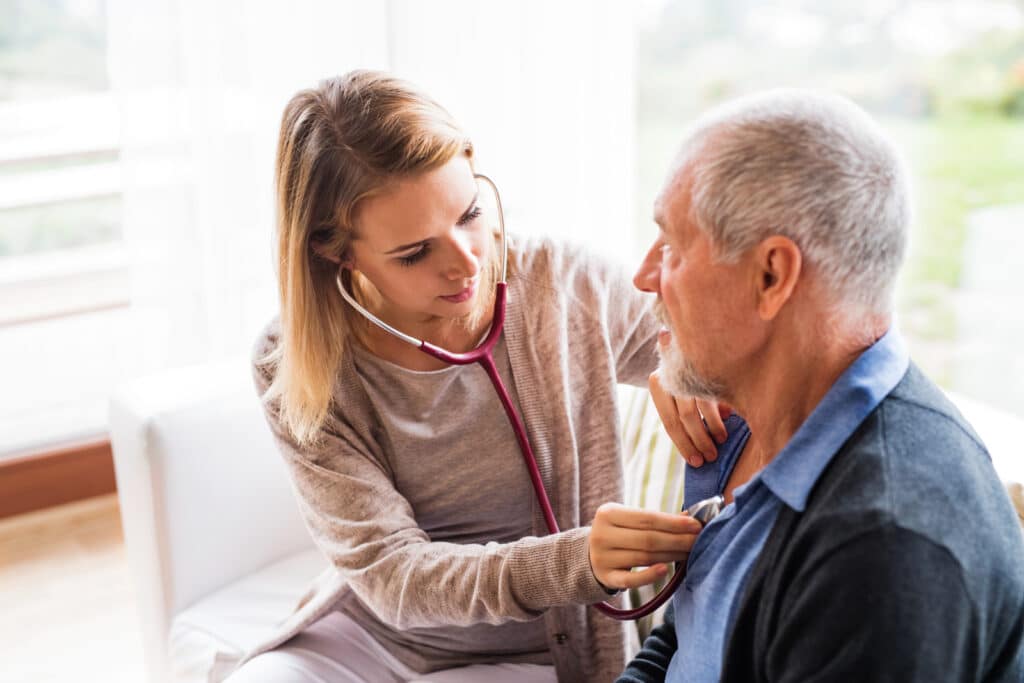We recently surveyed over 1,000 Australians to learn more about which method of contact they prefer to receive from medical centres when being recalled for non-urgent post-appointment follow-ups, such as blood test results.
In the survey, we asked patients if they preferred to be contacted by SMS, email, phone, or mail. We wanted to find out not only where the majority of patients sat on this question, but also how different factors, such as age, gender, location, and frequency of GP visits, influenced the answers.
Here’s what we discovered…
SMS is best, say patients
Overwhelmingly, patients said they prefer to be contacted about post-appointment follow-ups, like blood tests, by SMS (55%). While virtually no one indicated a desire to be contacted by mail (1%), patients were fairly equally split between email (20%) and phone (24%).
Based on these findings, SMS proved to be more than twice as popular as any other method. But how do the demographics break down?
The younger the patient, the stronger the preference for SMS
It’s probably no surprise that millennials (ages 18-34) have a strong preference for SMS (59%). However, their older peers, who may be thought to be less tech savvy, aren’t too far behind. For instance, patients between the ages of 35-54 also chose SMS in similarly high numbers (58%).
SMS was also largely the preferred method of communication for patients between the ages of 55-74 (48%).
A good number of people aged 75+ also preferred SMS (29%). Still, they liked other methods of contact more, with an equal number being split between email (36%) and phone (36%).
Men like mobile messaging… but women like it even more
Both genders expressed an overwhelming preference for receiving post-appointment follow-ups by text. However, women preferred SMS slightly more (57%) than men (50%).
According to a study from the Journal of Behavioural Addictions, women spend substantially more time on their phones each day than men, so perhaps this is part of the reason for the disparity in their responses.
On the other hand, men had a much stronger preference for email (26%) than women (17%). Both genders felt similarly about getting phone calls for post-appointment follow-ups, with men preferring this method (23%) just slightly less than women (25%).
SMS most popular among rural residents
While, regardless of location, all patients expressed a strong preference for post-appointment follow-ups to come via text, the data shows that the further a patient lives from the city, the greater their preference for SMS. This is seen in the steady increase in SMS preference from metropolitan patients (55%) to regional patients (57%) to rural patients (60%).
The next most popular method of communication varied significantly depending on location. For instance, 23% of metropolitan patients selected email as their second choice, while regional and rural patients were much more likely to prefer a phone call (28% and 32%, respectively).
Perhaps this is because in smaller communities, patients are more likely to have informal relationships with local medical professionals.
Texts are fine no matter how frequently patients visit their GP
It seems no matter how often a patient sees their GP each year, they still prefer post-appointment follow-ups to occur via SMS. For instance, among patients who go to their GP once a month or more, 57% of them expressed a preference for mobile messaging.
Text messaging was also selected by 57% of the patients who visit their GP every couple of months, 52% of patients who visit their GP annually, and 54% of the patients who see their GP less than once a year.
Interestingly, the less often a person sees their GP, the more likely they are to prefer contact by email. For instance, patients who visit their doctor less than once a year express a preference for email 31% of the time.
By contrast, only 15% of patients who see their GP once a month or more, want to be contacted by email. Instead, they would rather receive a phone call from their medical clinic (27%). Whereas those who visit their GP the least, were significantly less interested in being contacted by phone (14%).
Summary
After analysing the findings of our survey, one clear message emerged: patients want the ability to get recalls via text message.
Regardless of gender, location, frequency of GP visits, and age, virtually every demographic chose SMS messaging as their first choice for receiving recalls. In fact, only one demographic didn’t select text messaging as their first choice, and that was… no surprise… patients 75+ years of age.
Still, seniors aside, there is a clear preference for SMS among all other demographics – proving to be more than twice as popular as any other method among the general population.
The question is why?
Perhaps, this popularity is due to the speed and convenience of viewing an SMS? It may also be the fact that an SMS is easier to keep track of than a letter or phone call, or perhaps because there is very little spam in SMS compared to other channels (email, phone, mail). Or maybe it’s because some SMS recalls (like HotDoc) include a link to an online bookings page, so patients can book an appointment in one flow.
The truth is, we don’t know the exact reason why patients prefer SMS because unfortunately we didn’t ask patients why (save this for next time).
All we know is that people are becoming more and more dependent on their phones as their preferred means of communication. And, based on this trend, we can only assume SMS will continue to increase in popularity.
Want to send patients recalls by SMS?
HotDoc Recalls is Australia’s first secure SMS recalls system. Meeting full RACGP accreditation and privacy standards, HotDoc Recalls saves practices time and money. To date, over 12 million recalls have been successfully sent through HotDoc. Click the link above to learn more.
Introducing HotDoc Results…
We’re also excited to announce that HotDoc Results is now available to select HotDoc clinics. HotDoc Results allows clinics to recall patients for non-urgent follow-ups, such as to discuss blood results. To learn more about this new product, and watch a 2-minute video on what patients think, click the link above.



